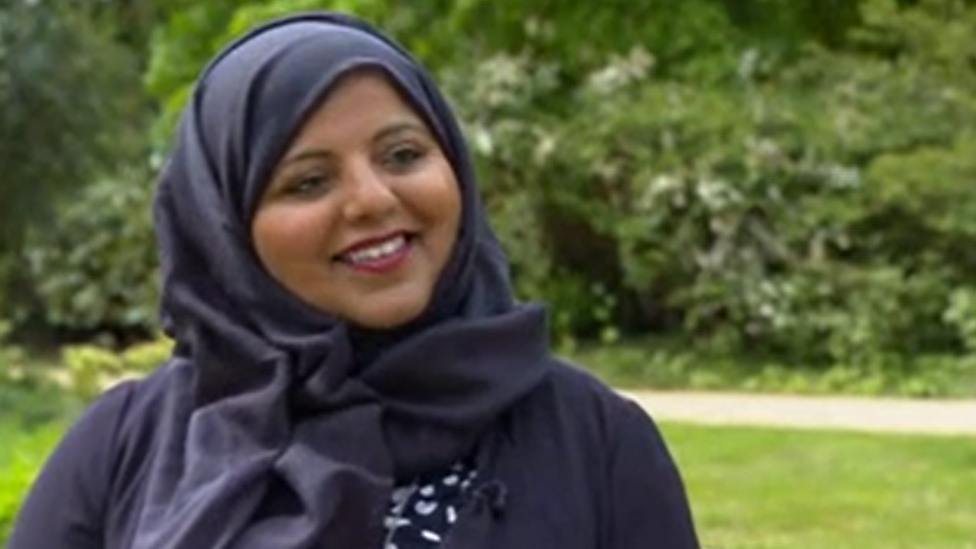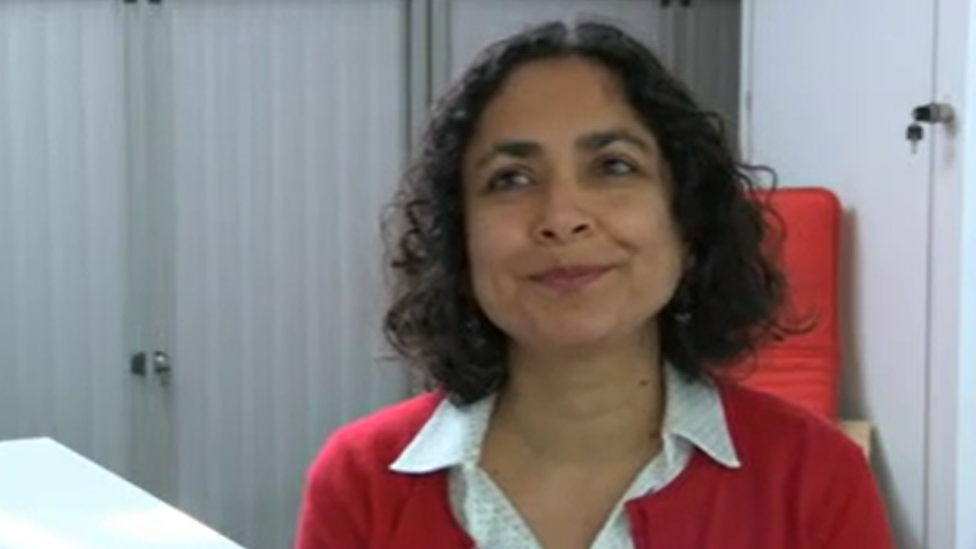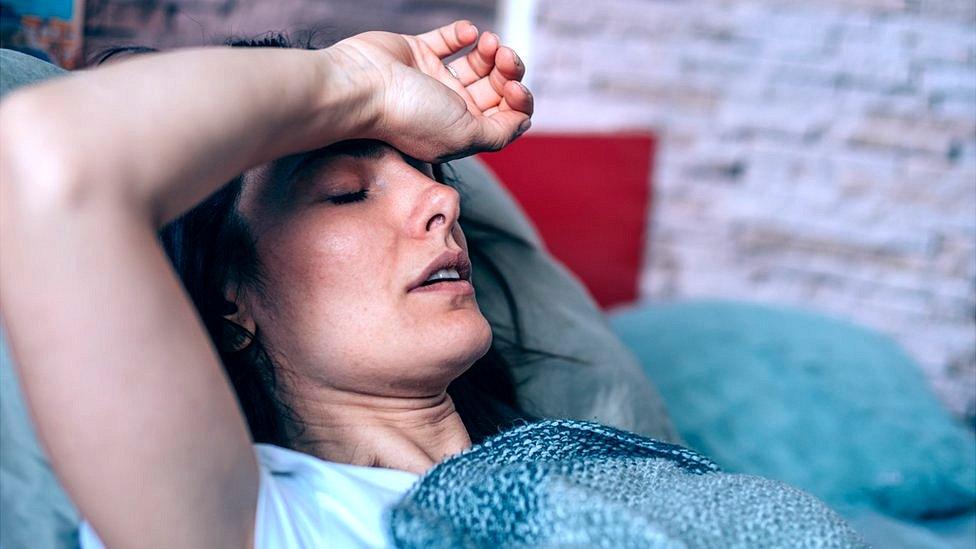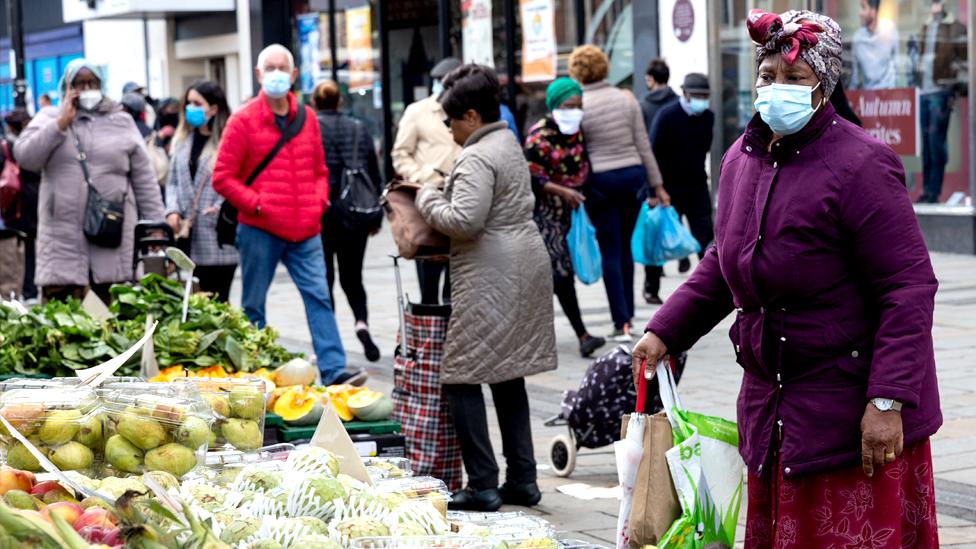Long Covid: Fears symptoms in ethnic groups 'not believed'
- Published

Shaista Aziz caught Covid at the beginning of the pandemic in February 2020
Concerns have been raised that people from ethnic minorities are not seeking help with long Covid due to fears they may not be believed.
Oxford city councillor Shaista Aziz said she was initially told her long Covid symptoms were hayfever.
Dr Tanvi Rai, from Oxford University, said she believed fears were "based on historical experiences".
Research previously found people from ethnic minorities had been most affected by the virus.
Oxford's long Covid clinic has seen mostly white patients and the team is investigating why it is not seeing more people from Black, Asian and minority ethnic backgrounds.
Ms Aziz, who contracted Covid in February 2020, said she was only seen at the clinic after 18 months of symptoms, including fatigue, insomnia and sight problems.

Dr Tanvi Rai said the pandemic had exacerbated existing health inequalities
"I had to give up my full-time job," she said, adding: "I couldn't do my work in the way that I wanted to do it because I was so exhausted.
"I couldn't actually see properly - I had extreme blurry vision."
She added she felt as though her symptoms were not at first believed.
"I rang the NHS hotline number and a doctor told me she thought I had hayfever," she said.
"When you live that reality as a minoritised woman, you are basically told to get on with things. We should be trusted. We should be listened to."
Respiratory consultant Dr Emily Fraser, who heads the long Covid service for Oxford University Hospitals NHS Foundation Trust, said the reasons why the long Covid clinic was not seeing more people from ethnic minorities was "unclear".
"Whether or not it just relates to the fact that different groups are more susceptible to getting long Covid, or whether it is that certain communities are just not reaching out for medical help," she said.
"That's something that we very much need to work on and identify the reasons why, and help bring people in if they need the help."
Dr Rai, senior researcher in primary care at Oxford University, said the pandemic had exacerbated existing health inequalities, and some minority groups may be reluctant to seek help for long Covid.
"For people who are from Black, Asian and minority ethnic groups there is also a fear that their symptoms will not be believed," she said.
"That if they seek help that they will not be encouraged to by the health services and this is based on historical experiences."
NHS England has been contacted for comment.

Follow BBC South on Facebook, external, Twitter, external, or Instagram, external. Send your story ideas to south.newsonline@bbc.co.uk, external.
Related topics
- Published10 March 2022

- Published3 December 2021

- Published2 June 2020
